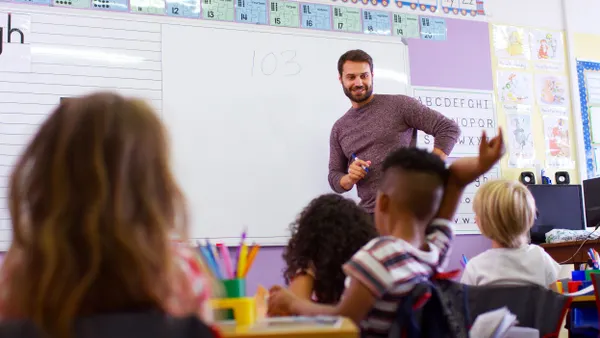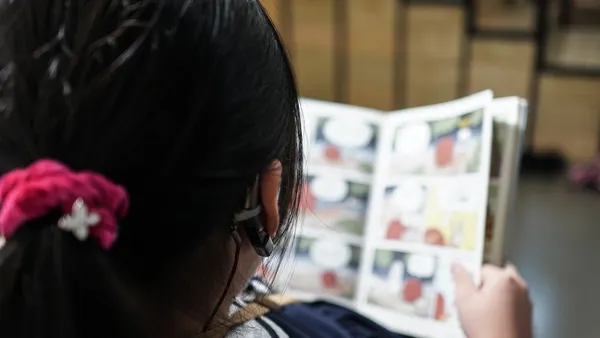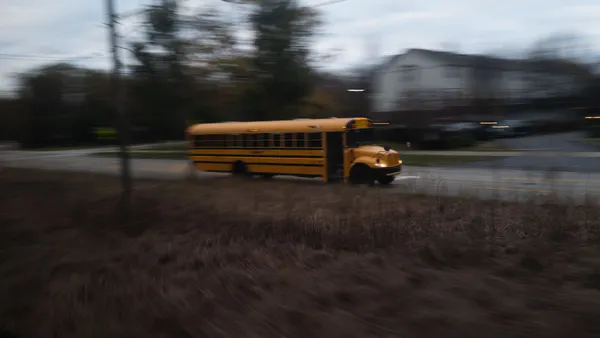Dive Brief:
- Writing for Edutopia, Zach Hurdle, an assistant mathematics professor at Southern Arkansas University, details how it can be easy to underestimate students' abilities and lower the bar.
- In his prior experience teaching at an individualized private school, Hurdle found that the 6th through 8th-grade students he taught could perform well on more advanced high school-level math if he didn't tell them it was at that level.
- Part of the trick, he notes, was allowing students to discuss their ideas and make connections with prior knowledge while providing minimal deep instruction, with success often coming down to how much students could simplify the processes and problems.
Dive Insight:
While some people appreciate a good challenge, it's worth noting a problem, presented with the knowledge of its complexity, can be daunting to many others. Sometimes, even if people have the skills to accomplish a task, knowing the difficulty can get them caught up sweating the small stuff.
In a subject like math, which can already carry a stigma of being hard — hence the notion of those who are "math people" and those who aren't — this is even more noteworthy. Rather than assigning a difficulty level to concepts and assignments, it is often best to make the connection to skills already learned that are applicable.












